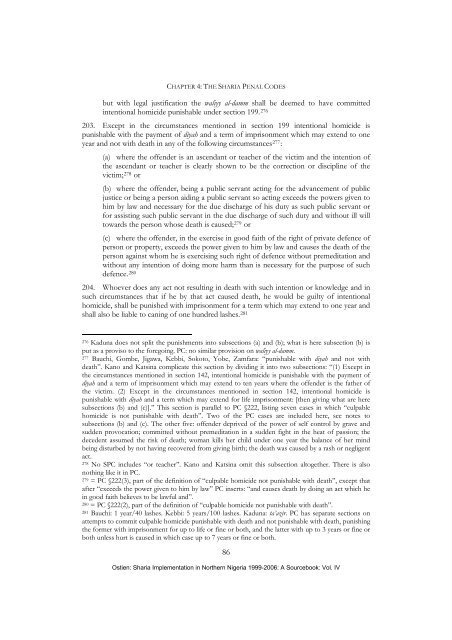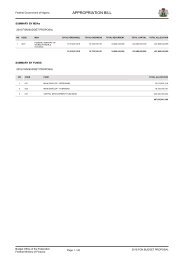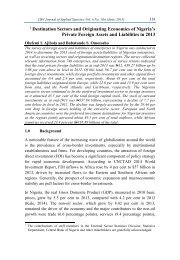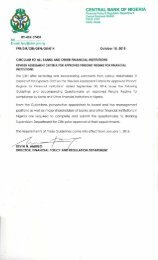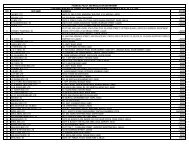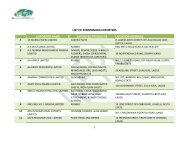vol_4_4_chapter_4_part_III
vol_4_4_chapter_4_part_III
vol_4_4_chapter_4_part_III
Create successful ePaper yourself
Turn your PDF publications into a flip-book with our unique Google optimized e-Paper software.
CHAPTER 4: THE SHARIA PENAL CODES<br />
but with legal justification the waliyy al-damm shall be deemed to have committed<br />
intentional homicide punishable under section 199. 276<br />
203. Except in the circumstances mentioned in section 199 intentional homicide is<br />
punishable with the payment of diyah and a term of imprisonment which may extend to one<br />
year and not with death in any of the following circumstances 277 :<br />
(a) where the offender is an ascendant or teacher of the victim and the intention of<br />
the ascendant or teacher is clearly shown to be the correction or discipline of the<br />
victim; 278 or<br />
(b) where the offender, being a public servant acting for the advancement of public<br />
justice or being a person aiding a public servant so acting exceeds the powers given to<br />
him by law and necessary for the due discharge of his duty as such public servant or<br />
for assisting such public servant in the due discharge of such duty and without ill will<br />
towards the person whose death is caused; 279 or<br />
(c) where the offender, in the exercise in good faith of the right of private defence of<br />
person or property, exceeds the power given to him by law and causes the death of the<br />
person against whom he is exercising such right of defence without premeditation and<br />
without any intention of doing more harm than is necessary for the purpose of such<br />
defence. 280<br />
204. Whoever does any act not resulting in death with such intention or knowledge and in<br />
such circumstances that if he by that act caused death, he would be guilty of intentional<br />
homicide, shall be punished with imprisonment for a term which may extend to one year and<br />
shall also be liable to caning of one hundred lashes. 281<br />
276 Kaduna does not split the punishments into subsections (a) and (b); what is here subsection (b) is<br />
put as a proviso to the foregoing. PC: no similar provision on waliyy al-damm.<br />
277 Bauchi, Gombe, Jigawa, Kebbi, Sokoto, Yobe, Zamfara: “punishable with diyah and not with<br />
death”. Kano and Katsina complicate this section by dividing it into two subsections: “(1) Except in<br />
the circumstances mentioned in section 142, intentional homicide is punishable with the payment of<br />
diyah and a term of imprisonment which may extend to ten years where the offender is the father of<br />
the victim. (2) Except in the circumstances mentioned in section 142, intentional homicide is<br />
punishable with diyah and a term which may extend for life imprisonment: [then giving what are here<br />
subsections (b) and (c)].” This section is parallel to PC §222, listing seven cases in which “culpable<br />
homicide is not punishable with death”. Two of the PC cases are included here, see notes to<br />
subsections (b) and (c). The other five: offender deprived of the power of self control by grave and<br />
sudden provocation; committed without premeditation in a sudden fight in the heat of passion; the<br />
decedent assumed the risk of death; woman kills her child under one year the balance of her mind<br />
being disturbed by not having recovered from giving birth; the death was caused by a rash or negligent<br />
act.<br />
278 No SPC includes “or teacher”. Kano and Katsina omit this subsection altogether. There is also<br />
nothing like it in PC.<br />
279 = PC §222(3), <strong>part</strong> of the definition of “culpable homicide not punishable with death”, except that<br />
after “exceeds the power given to him by law” PC inserts: “and causes death by doing an act which he<br />
in good faith believes to be lawful and”.<br />
280 = PC §222(2), <strong>part</strong> of the definition of “culpable homicide not punishable with death”.<br />
281 Bauchi: 1 year/40 lashes. Kebbi: 5 years/100 lashes. Kaduna: ta’azir. PC has separate sections on<br />
attempts to commit culpable homicide punishable with death and not punishable with death, punishing<br />
the former with imprisonment for up to life or fine or both, and the latter with up to 3 years or fine or<br />
both unless hurt is caused in which case up to 7 years or fine or both.<br />
86


